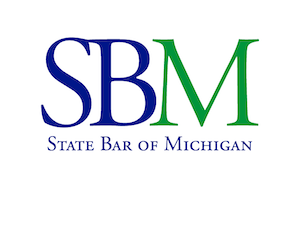Guide to a Peaceful Future
Trust Fund Recovery (Payroll Tax) Penalty
When Business Tax Problems Become Personal Nightmares
Few tax situations feel as unfair as being held personally responsible for a business’s payroll tax debt. The Trust Fund Recovery Penalty (TFRP or payroll tax) can devastate your personal finances, damage your credit, and destroy your professional reputation—all for tax problems that may have been beyond your control.
Just because you held a title or signed checks doesn’t automatically make you liable for payroll taxes. Payroll Tax liability depends on specific legal criteria: did you have actual control over paying the taxes, and did you willfully fail to do so? These aren’t simple questions, and the answers often differ dramatically from what seems obvious on the surface.
At Frazier Law, we specialize in defending against TFRP assessments by building comprehensive defenses based on the facts of what really happened in your business, not just your job title.
The Personal Destruction of TFRP Assessments
Trust Fund Recovery Penalty assessments create immediate personal liability for 100% of unpaid payroll taxes, destroying your financial life in ways that feel completely disproportionate to your actual role in the business:
Personal Asset Exposure Your home, retirement accounts, and personal savings become targets for collection, regardless of whether you personally benefited from the unpaid taxes.
Credit and Professional Damage TFRP assessments appear as personal tax debt on credit reports and can affect professional licenses, security clearances, and future employment opportunities.
Joint and Several Liability Multiple people can be assessed for the same debt, but the IRS can collect the full amount from any one person, leaving you potentially responsible for taxes far exceeding your actual culpability.
No Discharge in Bankruptcy Trust Fund taxes are non-dischargeable in bankruptcy, making payroll assessments a permanent burden that can follow you for life.
Ongoing Collection Enforcement Once assessed, TFRP becomes subject to all standard IRS collection powers—wage garnishments, bank levies, asset seizures—applied to your personal financial life.
How We Build Winning TFRP Defenses
Investigation Response and Initial Defense
When the IRS begins TFRP investigation
- Prepare comprehensive response to Form 4180 interview protecting against self-incriminating statements
- Analyze corporate structure, actual authority, and financial circumstances during relevant periods
- Gather documentary evidence supporting lack of control or willfulness defenses
- Coordinate with other potentially responsible persons to avoid conflicting positions
Formal Protest and Administrative Defense
When assessment is proposed or completed
- Develop comprehensive legal defense based on actual facts versus assumptions about authority
- Present documentary evidence of limited control, reasonable cause, or business necessity defenses
- Challenge IRS factual conclusions and legal analysis through detailed administrative protest
- Negotiate with IRS personnel to prevent assessment or reduce scope of personal liability
Appeals-Level Advocacy
When initial administrative review is unsuccessful
- Present case to Appeals Officers with authority to abate or modify payroll tax assessments
- Develop alternative legal theories and strengthen factual presentation with additional evidence
- Negotiate partial abatement or payment arrangements that recognize limited culpability
- Coordinate with broader business resolution strategies when multiple entities are involved
Collection Defense and Litigation Support
For cases requiring maximum protection
- Challenge collection actions through Collection Due Process hearings
- Coordinate asset protection strategies while maintaining Appeals and administrative tracks
- Prepare comprehensive litigation defense while pursuing administrative resolution
- Develop court-ready factual record and legal arguments for maximum leverage
Note: Trial preparation and representation handled through separate engagement
Our Strategic Defense Process: From Investigation to Resolution
Step 1: Comprehensive Fact Development We reconstruct exactly what happened during the periods in question—who had actual authority, what financial pressures existed, and what decisions were made by whom. Titles don’t determine liability; facts do.
Step 2: Legal Analysis and Defense Strategy We analyze your specific situation under established TFRP law to identify the strongest available defenses and develop a strategy that maximizes your protection.
Step 3: Professional Presentation We present your defense with comprehensive documentation and legal authority that demonstrates why you should not be held liable or why your liability should be reduced.
Step 4: Persistent Advocacy We pursue all available administrative and legal remedies, escalating through Appeals when necessary and maintaining pressure for fair resolution throughout the process.
Why Clients Choose Frazier Law for TFRP Defense
Deep Understanding of Payroll Tax Law Led by Charles R. Frazier, Esq., LLM (Tax), who teaches complex tax concepts to other professionals, we understand the nuances of TFRP law that separate successful defenses from costly failures.
Multi-State Practice, Federal Expertise Licensed in Tennessee, Michigan, and Texas, we defend TFRP cases regardless of location. Trust Fund penalties are federal matters requiring specialized federal tax expertise.
Business and Financial Planning Experience
- Certified Estate Planning Law Specialist (EPLS)
- Accredited Estate Planner (AEP)
- Charted Financial Consultant (ChFC)
These credentials demonstrate our understanding of complex business structures and financial pressures that create the context for effective payroll tax defenses.
Educator’s Approach to Complex Defense We explain exactly how TFRP law works, why you may or may not be liable, and what strategies offer the best protection. Understanding the law helps you make better decisions throughout the process.
Defending All Types of Business Leaders
Whether you were a corporate officer with limited actual authority, a professional who signed checks without understanding the implications, or a business owner dealing with financial crisis, we adapt our defense strategy to your specific role and circumstances.
We also represent professionals like accountants, attorneys, and consultants who become TFRP targets due to their advisory roles with distressed businesses.
Protect Yourself From Unfair Personal Liability
Don’t let business tax problems destroy your personal financial life.
Schedule a confidential strategy session where we’ll analyze your potential TFRP exposure, explain your defense options, and outline how we can protect your personal assets and reputation.











